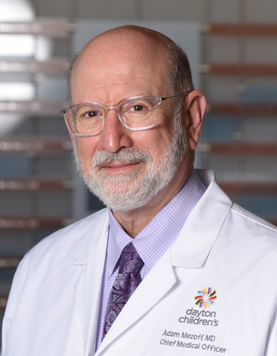12/16/20 blog post
why I am getting my COVID vaccination
by Adam Mezoff MD, chief medical officer
There has been a great deal of discussion about whether or not to get vaccinated for COVID-19. I would like to share my thoughts on this question.
the disease
The first consideration when contemplating a new vaccine is whether the infection causes illness that is significant. COVID-19 has killed more than a quarter of a million Americans, and it is estimated that another quarter million will die before the vaccination is widespread. In short, COVID-19 will be the most lethal infection in our lifetime.
While the virus tends to hit hardest adults age 50 plus and with certain pre-existing conditions, people of all ages, including children, have become extremely sick. Many people who survive are left with long-term effects including difficulty thinking straight, chronic fatigue, kidney failure or long-term breathing issues. It is not possible to predict who will be severely affected, or even die, from COVID-19.
Taking a chance of getting this infection, seems riskier than taking a chance on the vaccine.
More than 60,000 people have received one of the new mRNA vaccines (Pfizer and Moderna), and there have been no serious side effects from these vaccines to date with the exception of two people who were allergic to the vaccine, a rare event for all vaccines.
The results are more than 90 percent protection from getting sick and even those who get sick don’t get seriously ill.
the speed of the process
There has been a lot of politics around the haste of the development of the vaccine. While the vaccine has certainly been developed in record time, there are reasons that are important to understand to know that safety has not been bypassed.
The vaccine has been so successful it takes less people to prove it works. For example, if it only worked 50 percent of the time, the clinical trials would need a lot more patients in the study to prove it’s better than not getting a vaccine.
In early 2020, several processes were put in place to help expedite the process. For standard vaccinations, these processes occur step by step with one process following another.
Typically a vaccine is first imagined, then there are applications for funding to proceed with the creation of the vaccine. Once created, manufacturing ensures enough quantities to perform clinical trials. Once trials are completed, large scale production is planned when funding is available.
Due to the seriousness of the illness, the COVID-19 vaccine wasn’t created step by step, but rather done side by side. So early on, many governments, including ours, invested heavily in the research so the time taken to do this research was expedited because funding was immediately available.
Once the first vaccines were created, manufacturing was immediately done at a large scale to ensure availability for large clinical trials. Once the trials began, more money was invested to allow the manufacturing of large quantities of the vaccine, in hopes they would prove safe and effective. Essentially these millions of doses of the vaccine would have to be thrown out if the trials didn’t go as hoped. Again, speeding the process of development, but not the process of proving safety and efficacy.
Remember Ebola – very few folks around the world actually got this disease so it took longer to develop a vaccine. With so many people at risk for COVID-19, it was quicker and easier to get results for the trials.
Technology for vaccines, like other technologies, advance and get better with time. Think about your cell phone. How much better is the one you have now compared to the first one you ever bought? Similarly, the new mRNA technology helped vaccine development go better and faster with the COVID-19 vaccine. Both the Pfizer and Moderna mRNA vaccine technology show more than 90 percent effectiveness in all ages and races.
the why?
Ultimately, in considering all the factors above, knowing the seriousness of the disease and the chance to protect myself, my family, my patients and coworkers who are like family to me, the risk seems small in comparison to all the people I can protect. Therefore, I rolled up my sleeve when I was able to get the COVID-19 vaccine.



